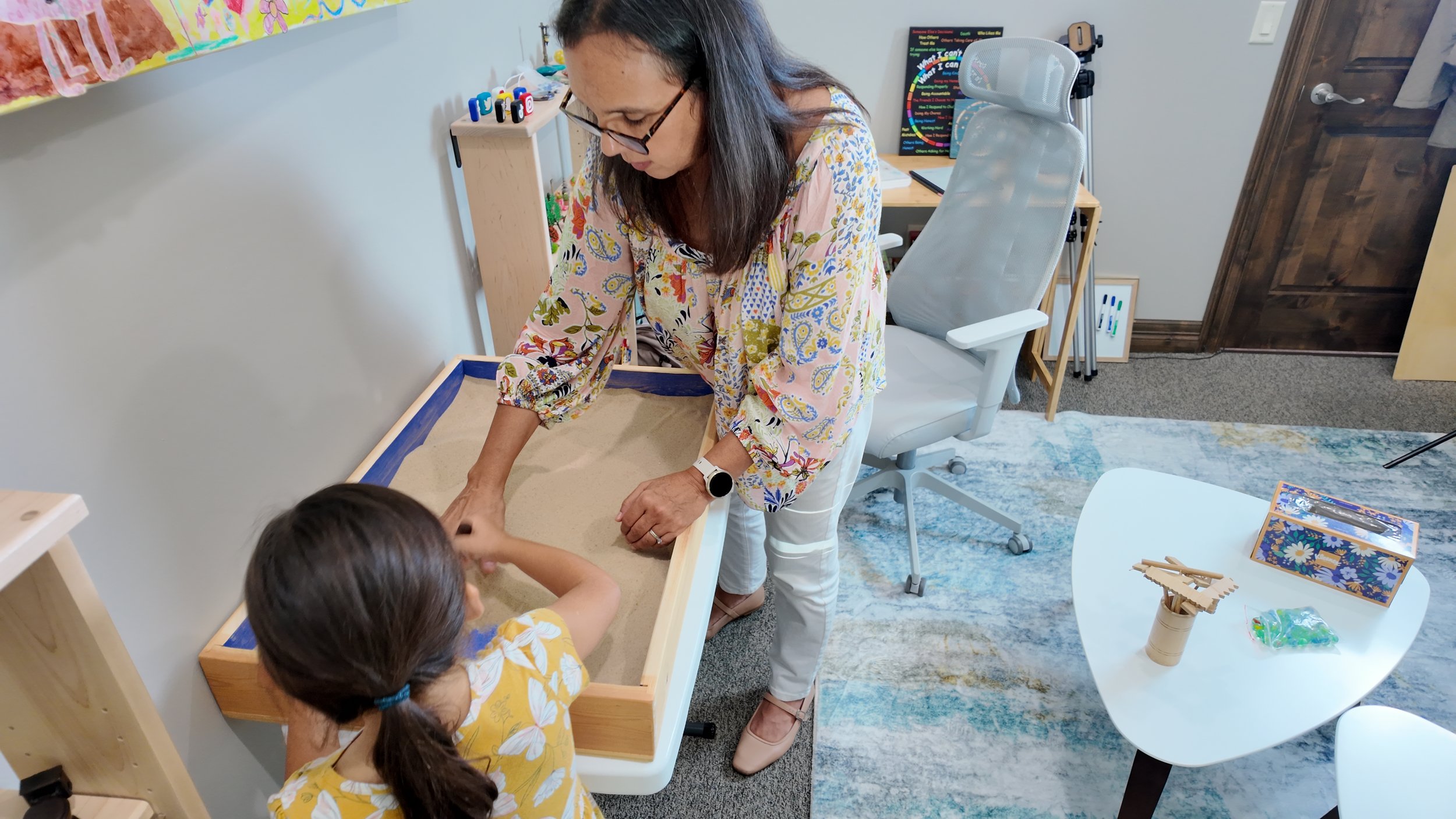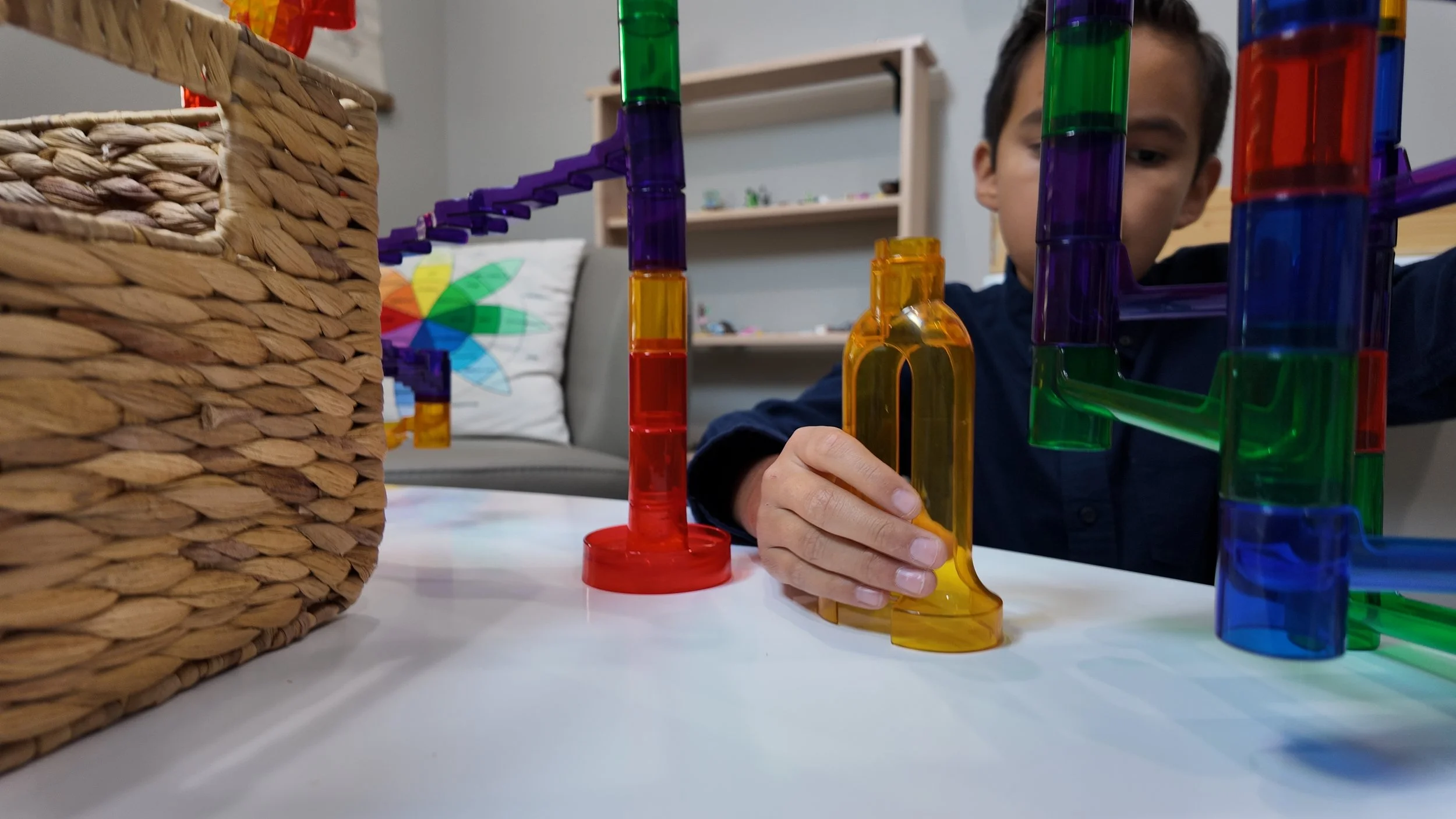What Is Play Therapy?
Hi, my name is Edith Cuevas, and I’m the founder here at Emmaus Counseling. I work with children as young as three years old, as well as with teens, families, parents, and individual adults. One of the most common questions I hear from parents is, “What exactly is play therapy?”
Understanding Play Therapy
Play therapy is a developmentally appropriate counseling approach designed to help children express their emotions, process experiences, and build healthy coping skills—all through the natural language of play. For children under the age of 10, play is the primary or most natural way of communicating. Rather than sitting across from a counselor and trying to explain how they feel, they use toys, art, and imagination to show what’s going on inside.
At Emmaus Counseling, play therapy allows children to safely explore their thoughts and emotions in a way that feels natural and comfortable to them. Play becomes their voice. Whether a child is working through anxiety, trauma, behavioral challenges, grief, or big life transitions, play therapy provides a nonverbal yet powerful way to understand and heal.
How Play Therapy Works
During a play therapy session, I create a calm, welcoming space equipped with toys, art materials, games a sand tray and a variety of miniatures. The child chooses what they want to play with—whether that’s building something, playing a game, creating a story, or working with sand and figures.
While the child plays, I observe their choices, expressions, and interactions, noticing what themes emerge. Some children prefer to play quietly on their own, while others invite me to join their world of imagination. Each choice provides insight into what the child might be feeling or trying to communicate.
Play therapy is an interpretive and evidence-based process. Research consistently shows that this form of therapy helps children improve emotional regulation, problem-solving, social skills, and self-confidence. It helps them process difficult emotions that they may not yet have the words to describe.
Why Play Therapy Is Effective
As adults, we often assume that talking through emotions is the best path to healing. However, children—especially younger ones—don’t yet have the abstract thinking skills needed to describe complex feelings. Asking a 5-year-old to “explain why they feel sad” often leads to confusion or withdrawal.
That’s where play therapy comes in. It bridges the gap between a child’s inner emotional world and their ability to express it. Through play, children learn to make sense of experiences, build trust with their therapist, and discover healthy ways to express anger, sadness, fear, or joy.
Supporting Parents and Families
At Emmaus Counseling, I also work closely with parents to support their understanding of the therapeutic process. After all, the healing that begins in the playroom continues at home. I often provide parents with insight into their child’s progress and practical tools to encourage emotional connection and communication within the family.
A Safe Place for Healing
If you are searching for play therapy in South Austin, Buda, or Kyle, I invite you to learn more about how Emmaus Counseling can help your child. My goal is to provide a warm, compassionate space where your child feels safe to be themselves—where play opens the door to healing, growth, and emotional resilience.
At Emmaus Counseling, we believe every child deserves to feel seen, understood, and supported. Through the power of play, we help children discover their voice, strengthen emotional awareness, and begin the journey toward lasting well-being.



